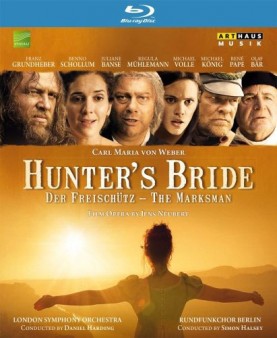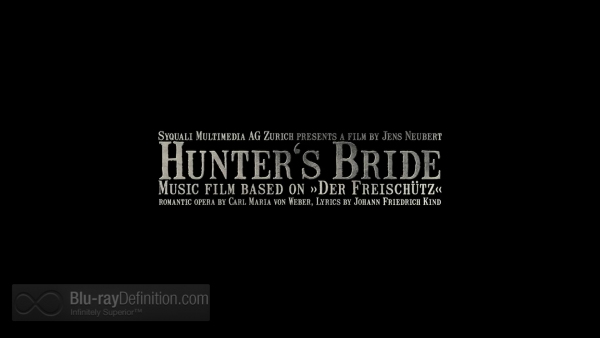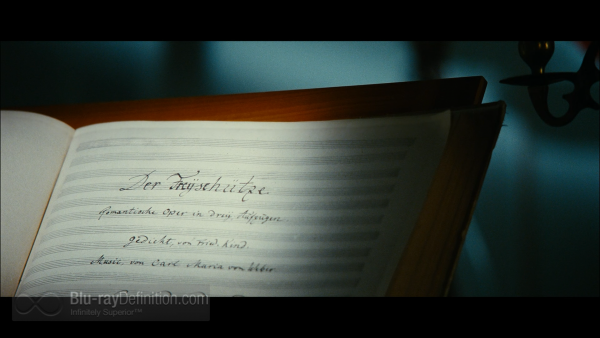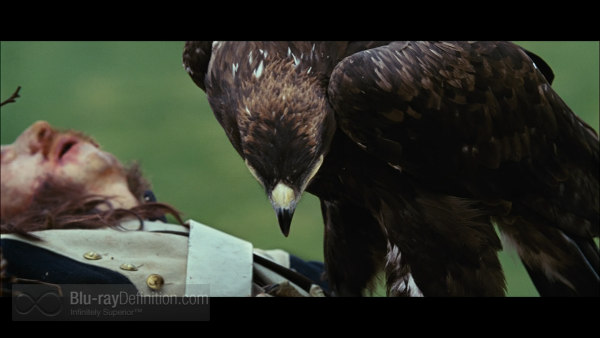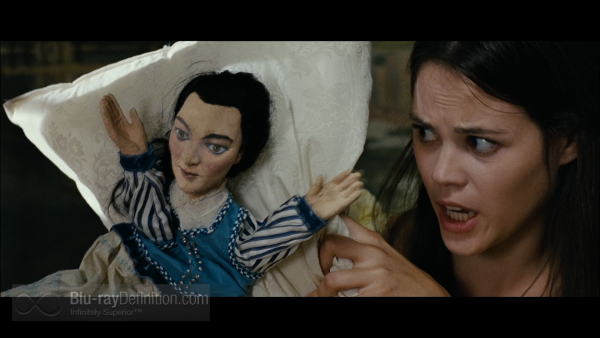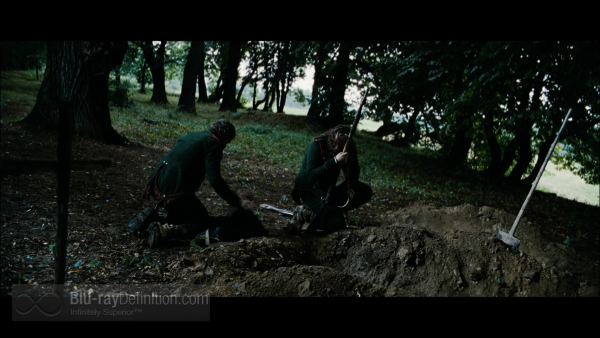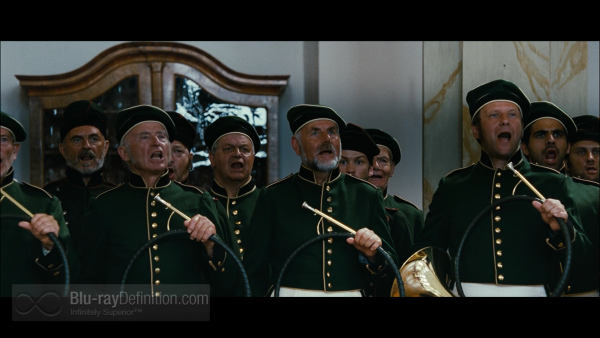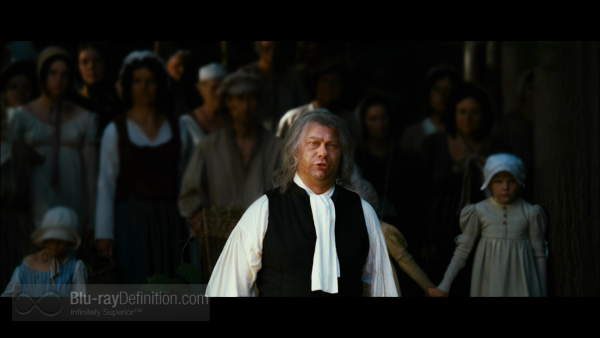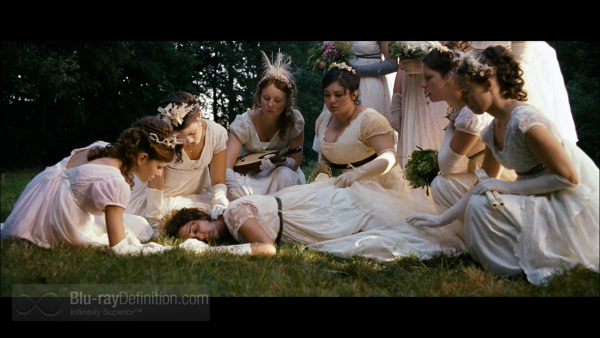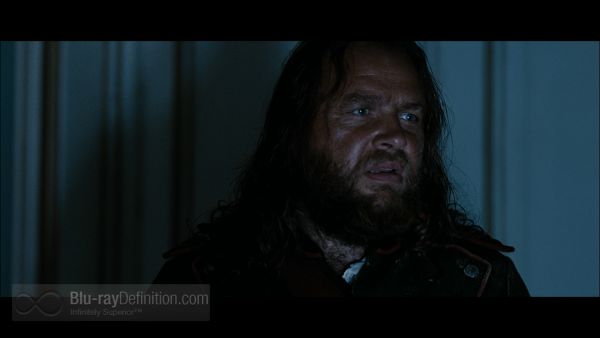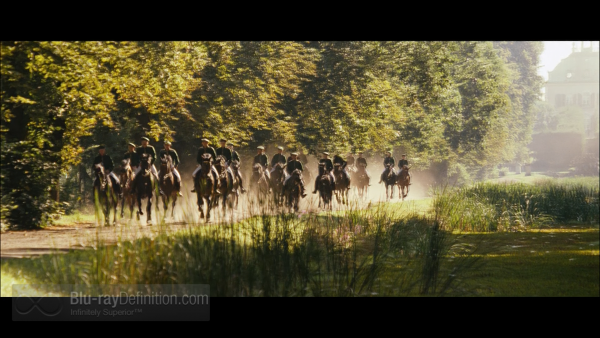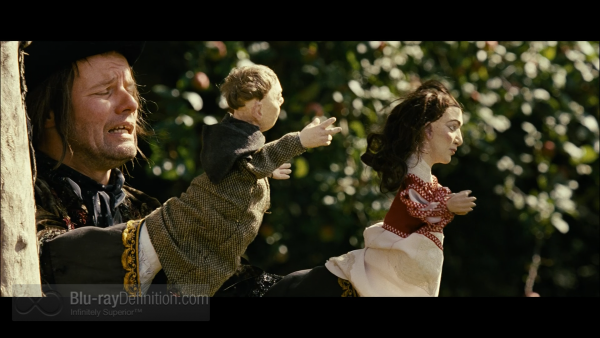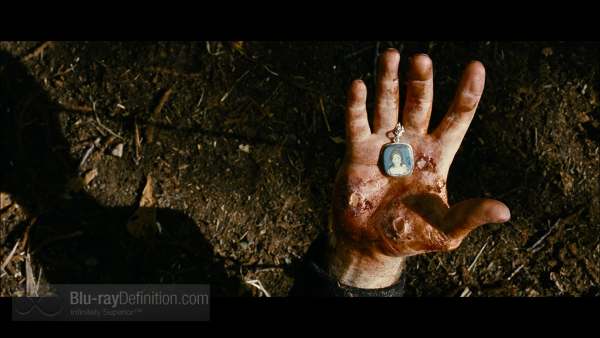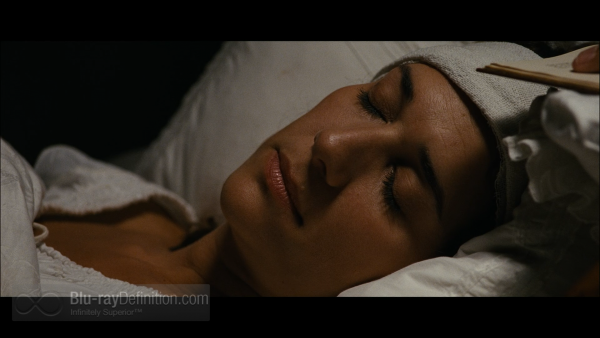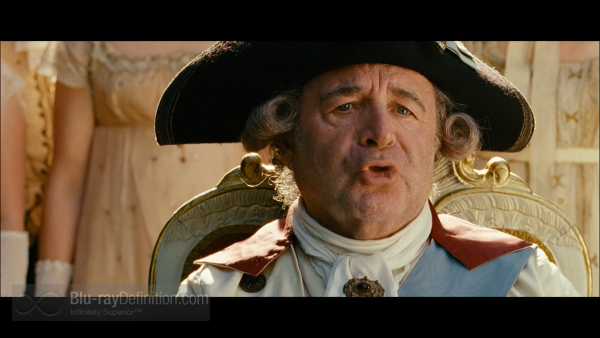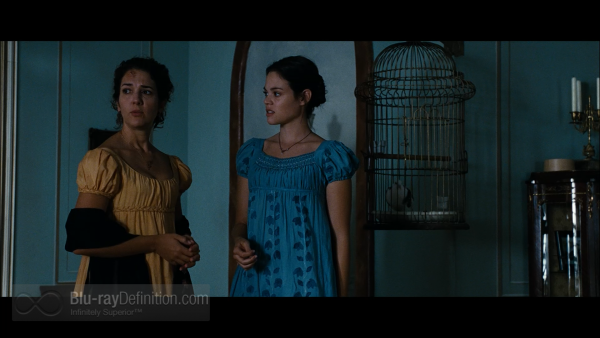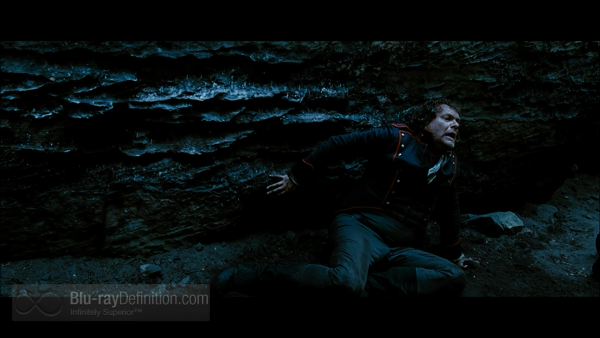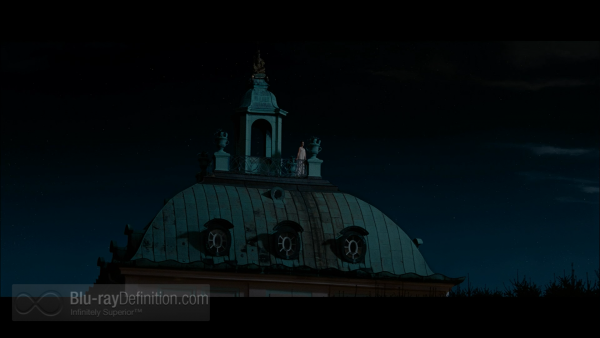– –
The Film
[Rating:4/5]
Film adaptations of opera have had a checkered course, examples being Bizet’s Carmen, Verdi’s La Traviata, and Puccini’s Tosca (all coincidentally with Placido Domingo). Here, director Jens Neubert takes no such chances and lets the authentic historical setting speak for itself. Perhaps Carl Maria von Weber’s ultimate accomplishment, Der Freischutz (the marksman) proves an exception with unquestionably great music that more classical music lovers need to hear. Set against the backdrop of the Napoleonic wars, Der Freischutz gets its due in viewer involvement that takes a rather banal plot and injects it with real life.
The forester Max (Michael Konig) is love with game keeper’s daughter Agathe (Juliane Banse). However he must win a shooting contest to attain her hand. His skills fall short of the mark and he is easily influenced by Kaspar (Michael Volle) who convinces him that magic bullets will give him his goal. After losing a shooting match, Max becomes convinced that he should pursue this solution. Demonic forces are invoked and Kaspar gets Samiel, the Black Huntsman aka the Devil to help to cast the magic bullets that Max will need to ensure success at the shooting contest.
With some plot twists, including Prince Ottokar (Franz Grundheber) signing a treaty with Napoleon (not in the original script) and intervention by the holy hermit (Rene Pape), Max and Agathe are united with a year’s probation for Max.
Many opera films are dumpy and bland but not this one. The dramatic tension of motion pictures aids the cause of an opera that is rarely mounted on today’s stages. In this case, sensitive conducting by maestro Harding and superb singing by the principals make for two hours of continuous pleasure.
Der Freischutz will probably never become a mainstream staple of the major repertoire of opera houses outside of Germany but this cinematic rendition is a great way to present this neglected opera to a new audience.
Video Quality
[Rating:4/5]
The high definition film is superb in all respects. The singer-actors adapt well to the film medium and there is drama that would not be easily achieved in the opera house. The cinematographers use the natural beauty of the historic locations to give a real sense of occasion.
Audio Quality
[Rating:4/5]
As might be expected, voices are favored in this film but the orchestra (recorded separately) provides a proper atmosphere when needed. Synchronization of sight and sound is perfect. The surround sound version is most definitely preferable to the two-channel alternative.
Supplemental Materials
[Rating:3/5]
There is a nice assortment of extras with this disc, including a beautiful souvenir booklet with essays on the background of this opera, its composer, track list, and an interview with director Jens Neubert. In addition, we get a fine extended featurette on “The Making of Hunter’s Bride” (55:20, German Dolby Digital Stereo 48kHz/24-bit), a photo gallery with stills from the production, a plot synopsis, cast and crew interviews (German/English Dolby Digital Stereo 48kHz/24-bit) and an audio commentary track by Neubert himself.
The Definitive Word
Overall:
[Rating:4/5]
Some will see the superimposition of this opera against the Napoleonic wars to be a distraction. In this case, it makes sense, particularly in maintaining the dramatic tension. With fabulous singing and taut musical leadership, Hunter’s Bride is an easy opera film to recommend to all viewers.
Additional Screen Captures
[amazon-product region=”uk” tracking_id=”bluraydefinit-21″]B00E3VFUL6[/amazon-product]
[amazon-product region=”ca” tracking_id=”bluraydefinit-20″]B00E3VFUL6[/amazon-product]
[amazon-product]B00E3VFUL6[/amazon-product]
[amazon-product region=”uk” tracking_id=”bluraydefinit-21″]B00E3VFUL6[/amazon-product]
[amazon-product region=”ca” tracking_id=”bluraydefinit-20″]B00E3VFUL6[/amazon-product]
[amazon-product]B00E3VFUL6[/amazon-product]


